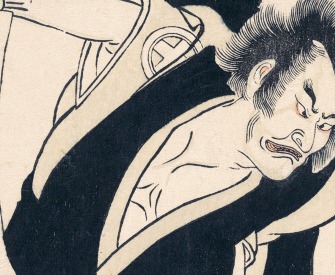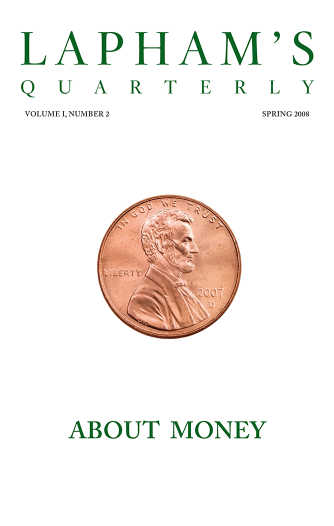Some men never recover from education.
—Oliver St. John Gogarty, 1954Agnes Callard Hopes for the Best
The social roots of learning and knowing.
In 2019 fifty or so parents were found to have bribed administrators and coaches to have their children accepted to colleges around the country. This college-admissions scandal—“Operation Varsity Blues,” as it was known—got drawn out over several news cycles. That a bunch of people broke the law was not, in fact, the real scandal, as several pundits made sure to stress. Their crimes were only the tip of the iceberg; the real, true scandal was so enigmatic, so elusive, so deeply buried, that even after weeks in the press, commentators still felt called upon to dig some more.
So what was the real scandal? It was the problem of legal donations, and the fact that they are tax-exempt. SAT prep classes. The fact that universities perpetuate a governing elite. The fact that universities fail to perpetuate a governing elite. Grade inflation. College sports. Rich parents spoiling their children. Celebrity parents using universities to “launder” economic status into social status. The corporatization of the university. The creeping credentialization of U.S. society. The racism our universities fail to fight. The economic inequality our universities fail to fight. The fact that universities are not meritocratic. The fact that universities are meritocratic.
Now I grant that the university is easy to misinterpret, because its innermost parts are hidden from view. What’s visible is who gets in and who is excluded; the fates of its graduates; clashes between townies and gownies; five-year completion rates; public-relations catastrophes; IRS 990 forms. If you go on a campus visit, you see the buildings, but not what happens inside them.
If you tried to understand museums by sitting outside and studying the demographics of who enters and exits, you might conclude that they existed to perpetuate the elite, and that they should work to achieve more social justice. Perhaps they do in fact do too much of the first thing, and should do more of the second. Nonetheless, your research would be missing something very important about what museums are for, something that requires entering the museum and looking at the art.
That doesn’t really get the pundits off the hook, because they tend to be college educated. The real scandal, if I may, is the fact that so many people who attended one seem to have no idea what it’s for. So let me come out and tell you what a university is for: A university is a place where people help each other access the highest intellectual goods. A university is a place of heterodidacticism.
An autodidact is someone who learns best on their own, by teaching themselves things. Heterodidact is a word I made up to describe the rest of us, for whom learning and knowing is a social activity.

Girls jumping rope at the Chuxi village primary school, Fujian, 2014. Photograph by Michael Yamashita. © Michael Yamashita / GEO Image Collection / Art Resource, NY.
While the college-admissions scandal was happening, I was teaching a class on Aristotle’s scientific system. What a crazy thing to teach or study, you might think. Hasn’t it all been surpassed by modern science? No. But even if it had been, it is truly amazing to witness the birth of scientific thought. Aristotle was the first to conceive that the changing, sensible, empirical world around us could be rationally systematized, and he did this in opposition to a tradition—beginning with Parmenides and culminating in Plato—that insisted such a project was in principle incoherent. Aristotle proved that science was possible. His works—Physics, Parts of Animals, On the Soul, On Generation and Corruption, etc.—taken together, constitute the most ambitious intellectual project a human being has ever undertaken. And he succeeded to an astonishing degree—his most radical moves against his contemporary interlocutors are the ones we’ve most tenaciously internalized.
I’m going to make a confession about that class: I did not know the material I was teaching very well. Aristotle’s natural philosophy is not my specialization, and I intentionally chose readings I was least comfortable with. Minutes before I walked into the classroom each Tuesday or Thursday afternoon, I had been buried in commentaries and confusion. There was so much I did not understand about Aristotle’s arguments against atomism! But time was up, and I had to get in there and say something. If you were in that class, you probably thought what I said sounded pretty good, pretty coherent. Actually, it was. But that wasn’t all me. I was looking at the students’ faces, noticing how they paid attention when I was making sense, noticing when they didn’t follow. Their interest drew me out. I listened to their questions and reframed the argument on the spot; sometimes an objection was so devastating I had to reorganize a whole lecture on the fly. Sometimes, when I just plain didn’t know the answer, I asked the question back at the class.
Teaching involves a sleight of hand in which the part of the student is erased, and the teacher ends up getting all the credit. Actually that’s a point from Book 3 of Aristotle’s Physics: he says the teacher isn’t teaching if the student isn’t learning, because teaching and learning are one activity.
Now don’t go thinking this was some kind of subpar, slapdash course. This was one of the best classes I’ve ever taught. Good courses have all the messiness of human cooperation baked into them. That’s what I wish I could’ve communicated to those embroiled in the admissions-scandal brouhaha; I wanted to break down the walls around my classroom, throw a spotlight on it, and tell everyone to stop talking, look, and listen: “It is happening right here—this is what universities are for: reading Aristotle together.” All the arguments about elitism and corporatization and donations were as irrelevant as the ivy growing on the walls.
I could give you a hundred more examples, but I’ll restrict myself to one. The previous quarter, I taught a class on courage, and we read Homer’s Iliad. I think the Iliad is one of the greatest things ever made by human beings, but I hadn’t read it in at least seven years. Why not? What was stopping me from picking it up? For that matter, why am I not reading it right now? The answer is that it’s hard to read the Iliad. Have you ever tried? It takes so much energy. All those epithets. So many tendons being unstrung by spearpoints. I am not some special kind of human who just sits around reading the Iliad for fun. I’m not that different from the students I teach. They get their energy from me, I get my energy from them. That’s how a university works.
And it’s totally amazing that human beings can do this, that we can form intellectual communities. If we didn’t actually see it happening, human beings collaborating with nothing to bind them to one another but a shared intellectual interest, we would doubt such a thing was possible. These communities are far from perfect, a fact they inherit from the creatures who compose them. But they are wonderful.
In Plato’s Republic, Socrates constructs an ideal city and lays out the details of an educational program for its rulers—who will later be known as “philosopher-kings”—and proposes that its citizens be told a lie. The lie is that the education that the rulers received was a dream, and that these rulers are equipped to rule because they have gold mixed into their souls. (The other, lesser citizens have silver or bronze mixed into their souls.)
Notice two things about Plato’s noble lie: First, the reader is explicitly told that it is not the truth. Plato does not hide this information “between the lines.” Second, its political function is to naturalize culture, which is to say, to make it appear as though differences caused by education were inscribed in people from the outset in the form of innate capacities whose existence underlies outer differences in social class.
I believe that Plato’s phrase noble lie is an attempt to describe something we might nowadays call “the ideology of the elite”—the story that elite people tell themselves, and one another, in order to justify their elevated social position. In Plato’s case, the privileges that get justified in this way are not wealth (the rulers in his city are kept poor, and even prevented from owning property) nor ruling (which Plato sees as a burden and a chore), but the gift of education itself, and that of the philosophical life that, we will later learn, the rulers will get to spend most of their lives living.
If Plato did not subscribe to the idea that only a select few have a talent for philosophy, does it follow that he thought everyone had it? Far from it. For one thing, he sets up elaborate contests and competitions to see whether the recipients of his educational program have in fact learned what they were taught. This suggests an acknowledgment of noneducational factors in the outcome. What Plato denies (or rather, what he uses the myth to deceptively assert) is that these factors play the role of talents or innate human potential.
Consider: If the only cuneiform class is at seven am, someone who is a “morning person” will be more likely to learn cuneiform. If we assume being a morning person is a biologically innate property, it would follow that in this scenario people are not naturally equal in respect of where they will end up, cuneiform-wise. But that doesn’t mean that being a morning person constitutes a talent for cuneiform or an innate potential to excel at cuneiform. Now imagine that most intellectual differences interface with the accidents of environment in just this brute, contingent way. No one would “deserve” their intellectual opportunities, any more than being a morning person entitles you to learning cuneiform.
The fact that the education program laid out in the Republic eventually turns out to involve over fifty years of trials and tests is an acknowledgment of how little knowledge Plato thought we could presume, even in a utopia, as to how to “make someone a philosopher.” In the real world, Plato’s view seemed to be that philosophers arise because occasionally a human being—for no reason, following no plan, and certainly not because he was secretly marked out as One of the Special Ones from birth—manages by sheer luck to find his way to the lone worthwhile life. Thus Socrates’ shortcomings with respect to the intellectual “talents” most valued in his era—memory and rhetorical cleverness—are often thematized by Plato. There are strange people who somehow, through a series of accidents, get and stay keyed to intellectual goods on their own—the autodidacts I mentioned earlier—but the rest of us need constant help reorienting, because just about every worldly temptation pulls us in the opposite direction.
This, in the end, is the explanation of why the innermost parts of the university are hidden from view—and not only to outsiders. I rely on my students and colleagues—including my dead colleagues, such as Aristotle and Plato—to redirect me when I lose my way. If I had left the university after college, I believe the intellectual life I occasionally glimpsed as an undergraduate would have faded into a nostalgic memory.
There’s nothing in your DNA that makes you a philosopher, nor is there some regimen you can run through to transform yourself into one. The closest we have come to devising a system for attuning a person to the intellectual life is to surround her with others aiming at the same thing for as long as the relevant parties can continue to afford it and hope for the best.
From “The Real College Scandal,” The Point, no. 25, “What Is College For?,” August 15, 2021. Copyright © 2021 by Agnes Callard. Used with permission of the author.
Agnes Callard
From “The Real College Scandal,” which was published in The Point. When she was a child, Callard and her family left Hungary for the United States with the help of a Jewish aid organization. She credits her decision to pursue her undergraduate studies at the University of Chicago, where she is now an associate professor of philosophy, to a letter she received from humanities lecturer Amy Kass critiquing her admissions essay. “She had this gift,” Callard told an interviewer, “of asking questions and then looking at you in such a way as to make it seem that the weight of the world lay on your answer.”

